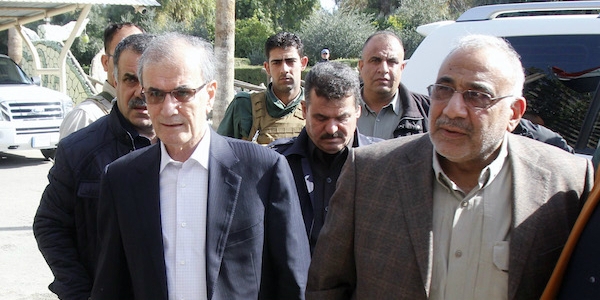Q&A: Kirkuk Governor Najmaldin Karim
Karim criticizes leaders in both Baghdad and Erbil for their handling of oil policy and territorial disputes, and outlines a vision of Iraqi federalism that empowers provinces.
Kirkuk Gov. Najmaldin Karim (L) and Iraqi Oil Minister Adil Abd al-Mahdi (R) walk on the outskirts of Kirkuk on Feb. 2, 2015. (AKO RASHEED/Reuters)
KIRKUK - In an environment of low oil prices and high military spending demands, the crude beneath Kirkuk is more important, and more politically sensitive, than ever.
On one level, Kirkuk's oil has functioned as a powerful incentive for political reconciliation. Iraq's federal government and the autonomous Kurdistan Regional Government (KRG) – both facing multi-billion-dollar budget gaps – have cooperated to export Kirkuk oil that had been shut in after the rise of the Islamic State (IS) militant group.
Login to your account
Subscribe for news access
Annual News subscribers receive access to the full archive of Iraq Oil Report articles.





